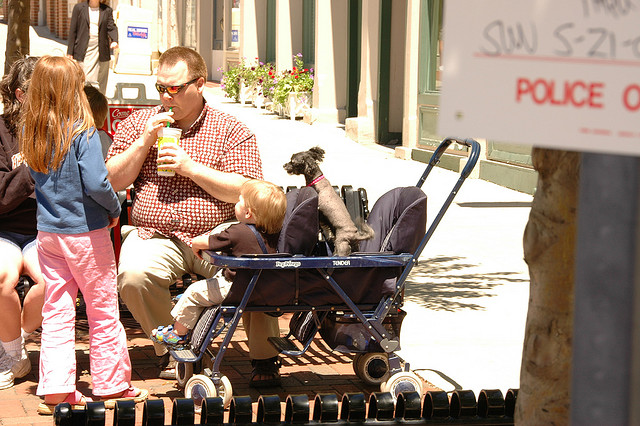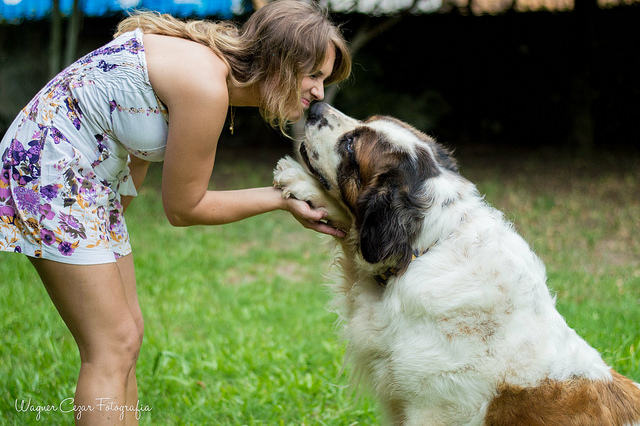
Human-like modes of communication, including mutual gaze, in dogs may have been acquired during domestication with humans. We show that gazing behavior from dogs, but not wolves, increased urinary oxytocin concentrations in owners, which consequently facilitated owners’ affiliation and increased oxytocin concentration in dogs. Further, nasally administered oxytocin increased gazing behavior in dogs, which in turn increased urinary oxytocin concentrations in owners. These findings support the existence of an interspecies oxytocin-mediated positive loop facilitated and modulated by gazing, which may have supported the coevolution of human-dog bonding by engaging common modes of communicating social attachment. (sciencemag.org)
What’s Oxytocin? It’s a “mammalian hormone that also acts as a neurotransmitter in the brain.” (www.pyschcentral.com)It’s involved “in social recognition and bonding, and may be involved in the formation of trust between people and generosity.” Hugging, touching and other intimate acts release the hormone, as does gazing into the eyes of someone you are fond of, such as a child.Guess what? It’s also released when you pet or gaze into a dog’s eyes.And, according to the research completed by Miho Nagasawa and company, it’s also released in the dog’s brain as well – creating what they call a “feedback loop.”This video is a simple explanation of the research:Interestingly, when they tried the experiment with wolves raised by humans, no oxytocin spike was found in either human or wolf – meaning this loop must have evolved over the time dogs were being domesticated.Another interesting find was that when they sprayed the dogs with oxytocin, female dogs gazed longer at their owners and their owners had higher levels when tested. As of now, they don’t know for sure why – though a good guess would be that it has something to do with mothering instincts.What does this mean?It means that every time you interact with your dog, you are strengthening the bond between you to at a hormonal level.So next time someone makes fun of you for calling your dog your kid, you can tell them it’s a completely natural thing that your body is telling you to do!
